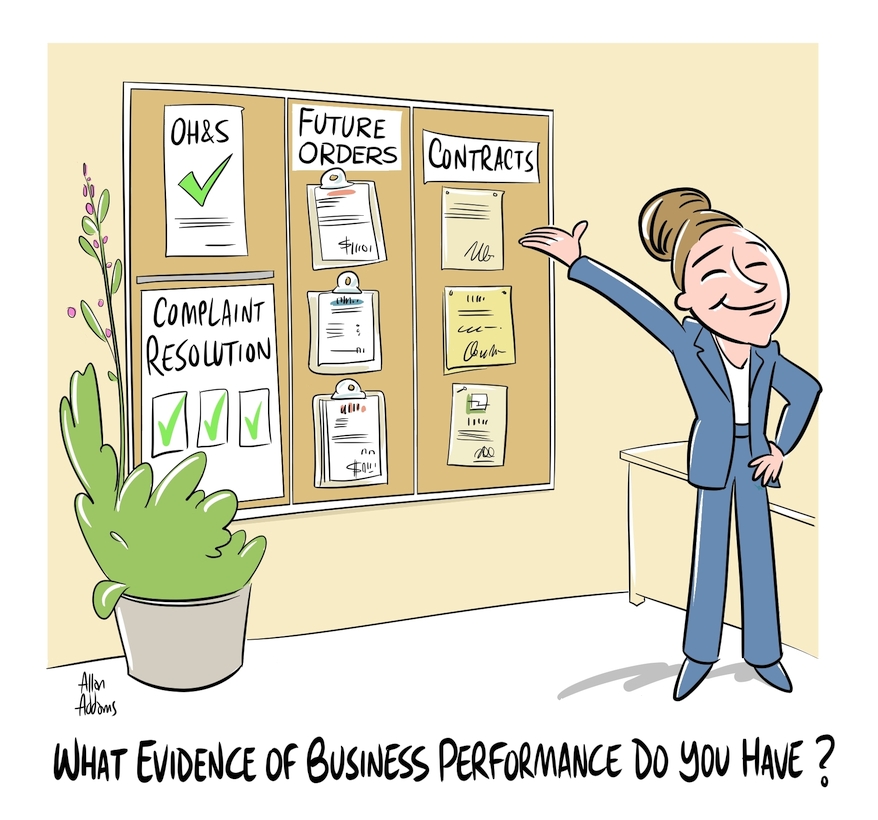
When selling a business, a buyer or investor and their advisors will typically ask to see your last three years’ financial statements, as prepared by your accountant.
This is the base level of information that external parties usually start with and it’s important because it shows things like receipts, payments, liabilities and assets, profits, losses, increases or decreases in equity, and cashflow position, i.e. critical evidence of performance.
However, when it really comes down to determining the value of your business and convincing a willing buyer to take on its risks and opportunities and pay an optimal amount for it – including the value of assets, but also some goodwill – you need more than just financial statements, because the smart buyers don’t stop there!
The businesses we’ve seen do well in transactions are ones that have also had transparent, credible evidence of performance relating to some or all of the following business health factors:
- Customers – strength of relationships and level of diversity
- Suppliers – level of reliance, spread of coverage and stability of supply chain arrangements
- People – concentration of responsibilities, engagement and retention, culture and productivity
- Delivery – project and job performance versus budgets, service levels and client feedback
- Pipeline – work in progress and forward outlook, contracts and tenders, and prospects.
Focus on your pipeline
Let’s take ‘pipeline’ as an example to underline the importance of communicating this information to outside parties.
We’ve talked about this before, but one of the key elements we often find missing from business operating information is evidence of likely forward performance.
We want to know what that forward pipeline looks like:
- Is your pipeline empty or full?
- What are the factors likely to impact upcoming trading conditions (both internal and external to the business)?
- What is the likely win rate on prospects, including any intelligence the business has on the firms you’re pitching to – and going up against – for work?
We’ve had some successful clients with tens and even hundreds of millions of dollars in turnover who haven’t kept evidence of their work in progress, contracts, agreements and pipeline performance in a way that was easily presentable and understood by a purchaser or other external party, such as a bank or potential investor.
Not having this granular information to hand can throw up doubts and queries for a potential buyer or investor, reducing their level of confidence as to the intrinsic strength and value of the business.
Confidence is key
Evidence of performance is about giving a potential buyer confidence that when they scratch the surface there is a robust position underneath. And it’s not just about telling all the good news but being able to genuinely communicate the level of risk/return associated with the business.
And as a business owner, keeping up-to-date evidence of performance will not only help you when trying to attract an external party for financing, investment or sale, it will also provide a key management tool to improve business performance into the future.
If you would like advice on business value, goodwill in your business, earnings sustainability or exit options, contact the JPAbusiness team on 02 6360 0360 or 02 9893 1803 for a confidential, obligation-free discussion.

